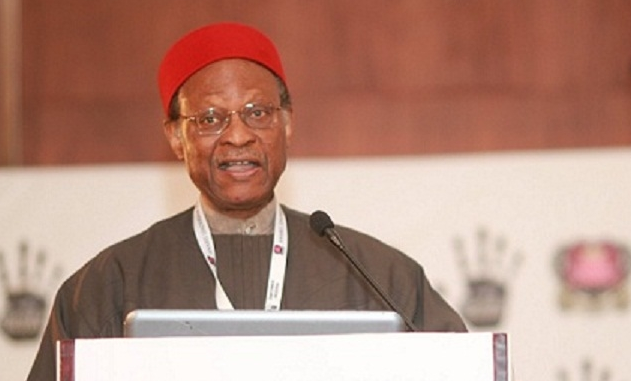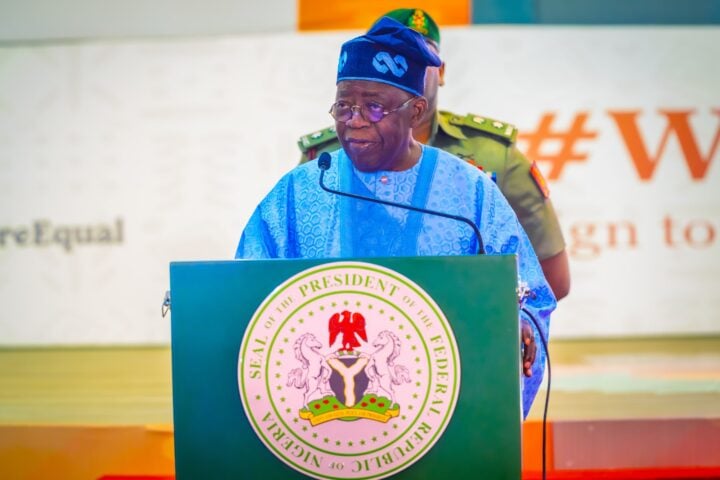File photo of Emeka Anyaoku
Emeka Anyaoku, former secretary-general of the Commonwealth, says the 1999 constitution cannot address the nation’s socio-economic challenges.
Anyaoku spoke on Wednesday in Lagos at the launch of the book titled, ‘The Noble Academic and Patriot: A Biography of Emeritus’, an autobiography by Akinjide Osuntokun, a professor of history and former ambassador to Germany.
The elder statesman argued that the current constitution has failed to accommodate Nigeria’s diverse population and, as a result, impedes national progress.
He emphasised the country’s diversity, asserting that Nigeria’s pluralistic society—comprising distinct groups with varied histories, cultures, languages, and religions—requires a constitution that promotes unity and inclusivity.
Advertisement
“To those who think that the trouble with Nigeria today is the political leadership, I would say that as long as we have the 1999 constitution as our grundnorm, not even Angel Gabriel or Malaikah Jibrin as leaders can successfully tackle the divisiveness, the underperforming economy with the resultant poverty, insecurity, humongous corruption, and the other major challenges currently facing Nigeria,” Anyaoku said.
“The universal lesson is that pluralistic countries which have survived as single political entities in unity and progress are those that addressed their pluralism, that is their diversity, with genuine federal constitutions. Examples of such countries are India, Canada and Switzerland.
“I believe, therefore, that if our pluralistic Nigeria is to achieve true unity and political stability, and to successfully tackle the serious challenges that the country currently faces, it must have a truly federal constitution.
Advertisement
“The divisiveness, the underperforming economy with the resultant massive poverty, the insecurity, the humongous corruption and the other major challenges currently facing Nigeria — my warning, therefore, is that for the sake of preserving our country, the federal government and national assembly should not delay any longer in acting to what is clearly a universal lesson.”
He stressed that a return to the principles underpinning Nigeria’s 1960/1963 constitution, which he believes was negotiated by the country’s founding fathers and better accommodated its diversity, would be crucial for the nation’s future.
Anyaoku noted that after the 1960 constitution was implemented, Nigeria experienced greater unity, stability, and development — until the military takeover in 1966, which introduced a unitary system that has persisted in various forms to the present day.
“We must have a true Nigerian peoples democratic constitution based on the principles that underlie our 1960/63 constitution which was painstakingly negotiated and agreed by the founding fathers of independent Nigeria,” he added.
Advertisement
“As many of us in this room will remember, Nigeria was more united, stable, and developing towards achieving its potential after that constitution until the military intervened in governance in January 1966 and introduced a unitary constitution that has virtually existed, albeit in different forms, until today.”
Under the 1960 constitution, Nigeria had three regional governments with significant autonomy, a bicameral legislature and a parliamentary system.
It was subsequently replaced by the 1979 constitution, and later 1999 constitution.
Advertisement
Add a comment










